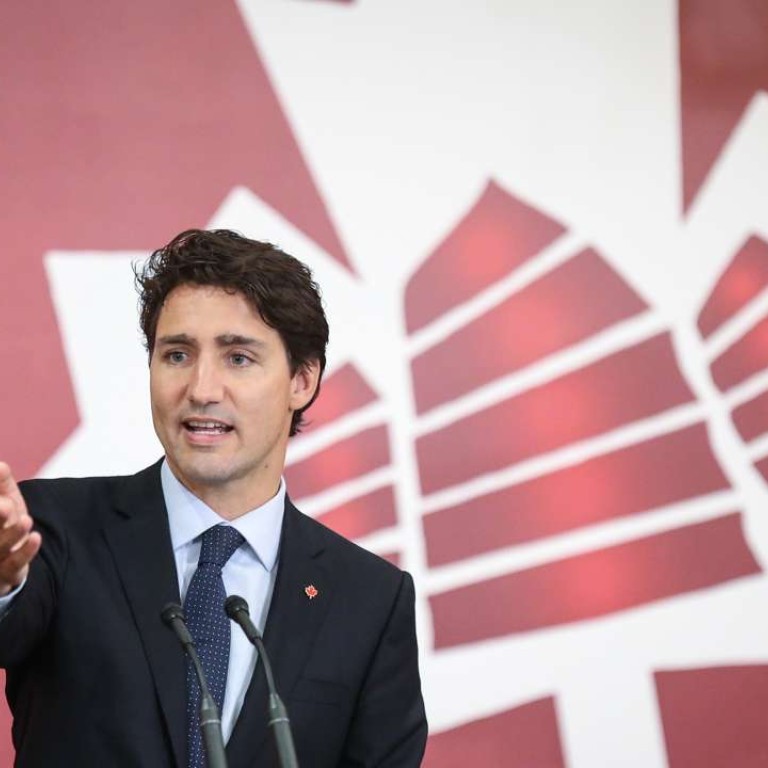
Canada to grant voting rights to hundreds of thousands of its citizens in Hong Kong
Any adult expatriate who has ever lived in Canada will be allowed to vote, under the new rules
Canada’s Liberal government has moved to grant voting rights to expatriates, including hundreds of thousands of its citizens living in Hong Kong.
The bill to increase voter eligibility was introduced to parliament on Thursday. It rolls back a measure that excluded more than one million short-term expats worldwide from voting in 2015, in the election that brought Prime Minister Justin Trudeau to power. But it goes much further by extending voting rights to all adult citizens who have ever lived in Canada.
Maryam Monsef, the minister for democratic institutions, told a news conference the reforms will “break down unnecessary barriers to voting, while enhancing the efficiency and integrity of our elections.”
The measures do not, however, go as far as the Liberals pledged during the last campaign to revamp the way Canadians vote, by dropping the current first-past-the-post system in favour of a more representational model.
Those efforts have been met with significant criticism from the opposition which has called for a referendum on proposals, while in polls Canadians showed little appetite for such a drastic change.
Monsef said she hopes to introduce that legislation in the first half of 2017, while renewing her opposition to holding a referendum.
“I don’t believe that a referendum is the best way to go about having a really complex conversation about an important public policy issue like electoral reform,” she commented.
Most non-residents were unable to vote in Canadian elections until 1993, when Ottawa created a special mail-in ballot for expats who had lived outside Canada for fewer than five years and intended to return.
But the five-year rule was struck down in 2014, effectively depriving half of all Canadians living abroad of the right to vote. The decision provoked a backlash and a court challenge that is still ongoing.
Actor Donald Sutherland lashed out in an opinion article at the time, saying: “I’m Canadian. There’s a maple leaf in my underwear somewhere ... I have to restrain myself from saying ‘eh?’... But I can’t vote.”

The new rules go further than simply restoring voting rights to short term expats – they would allow anyone who has ever lived in Canada to cast a ballot.
They would theoretically include most of the 300,000 Canadians who live in Hong Kong, most of whom are returnee emigrants and their children. Huge numbers of Hongkongers emigrated to Canada ahead of the 1997 handover, but many have now returned as dual citizens.
A Hong Kong civil servant close to retirement age, Mr Kwok spent 11 years living in Canada and left in 1995. He said he was not aware that the former government took away his voting rights but welcomed the decision to restore them.
“Having the right to vote is an honour, this will motivate me to pay more attention to their political news because I still have family members living in Canada and I will spend more time over there after I retire,” Kwok said, adding that he would vote if he was in Canada during an election.
But Jeshua To Yond-chi, 39, a high school teacher in Hong Kong who was born in Canada, said he would not vote, despite the bill.
“I only lived there for 10 years when I was young. I do not know that much about Canadian politics and have not been following closely of their news, so I believe it would be irresponsible for me to vote,” he said.
Proponents of the previous restrictions cited possible abuses.
After the government was called to rescue nearly 15,000 Canadian citizens living abroad and with few ties to this country from Lebanon in 2006, Ottawa became openly concerned about outside influence in Canadian elections.
Those fears, however, may have been exaggerated as expat voter turnout has typically been very low.
The legislation’s proposed reforms also include increased voter identification options such as allowing one voter to vouch for another who does not have proper identification, after 173,000 people did not vote in 2015 due to a lack of ID.
Another would create a national registry of future electors, aged 14-17, who would be automatically added to registration rolls when they turn 18.
Additional reporting by Kinling Lo

.png?itok=arIb17P0)